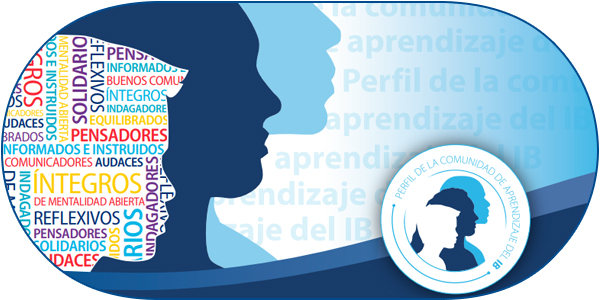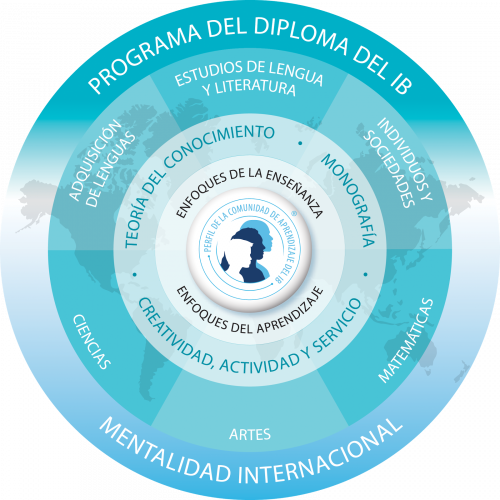International Baccalaureate
Estudiantes International School is an authorized centre to deliver the International Baccalaureate® (IB) Diploma Programme.
IB World Schools share a common philosophy: a commitment to high-quality, challenging, international education that we believe is important for our students.
Only schools authorized by the IB Organization can offer any of its four academic programmes: the Primary Years Programme (PYP), the Middle Years Programme (MYP), the Diploma Programme (DP), or the Career-related Programme (CP).
For more information about the IB and its programmes, visit www.ibo.org.

Approaches to Teaching and Learning
IB programmes are taught by teachers who explicitly help students learn how to develop the attitudes and skills necessary for academic and personal success.
Approach to Teaching
There are six key pedagogical principles on which IB programmes are based:
• It is inquiry-based.
• It focuses on conceptual understanding.
• It is developed in local and global contexts.
• It focuses on effective teamwork and collaboration.
• It is differentiated to meet the needs of all students.
• It is guided by assessment (formative and summative).
Approach to Learning
Essential skills are developed, such as those related to managing behaviour and emotions, those that enable students to take control of their own learning effectiveness, and those that allow them to process information efficiently.
• Thinking skills
• Communication skills
• Social skills
• Self-management skills
• Research skills
Diploma Programme

What is the Diploma Programme?
The International Baccalaureate® (IB) Diploma Programme (DP) is a two-year academic assessment programme for students aged 16 to 19, respected by leading universities worldwide.
Diploma Programme Curriculum Content
The curriculum consists of the core components of the Diploma Programme and five subject groups:
The three core components of the Diploma Programme aim to broaden each student’s educational experience and encourage them to apply their knowledge and skills, and are mandatory for all students.
These core components are:
Extended Essay, which consists of a research paper of approximately 4,000 words;
Creativity, Activity, Service (CAS), a volunteer project that each student must complete during the Diploma Programme; and
Theory of Knowledge, a mandatory subject that explores the processes of the mind in acquiring knowledge.
From the subject groups, students will choose one subject from each group, plus an additional subject from Group 3 or Group 4.
Of these subjects, each student selects three at standard level (150 hours over two years) and three at higher level (240 hours over two years).
Group 1: Studies in Language and Literature
– Language A: Language and Literature
Group 2: Language Acquisition
– Language B: English
Group 3: Individuals and Societies
– Business Management
– Economics
– Philosophy
Group 4: Sciences
– Biology
– Chemistry
– Environmental Systems and Societies
– Physics
Group 5: Mathematics
– Mathematics: Analysis and Approaches
– Mathematics: Applications and Interpretation

Assessment and Examinations
In the Diploma Programme, the IB uses both internal and external assessment.
External Assessment
Examinations are the basis of assessment in most courses. This is due to their high levels of objectivity and reliability, ensured by evaluation carried out by external examiners.
They include:
Essays
Structured problems
Short-response questions
Data-response questions
Text-response questions
Case study questions
Multiple choice questions
Internal Assessment
In most courses, teacher assessment is also used. This includes:
Oral work in languages
Fieldwork in Geography
Laboratory work in Sciences
Investigations in Mathematics
Artistic performances
IB and University
Each year, more than 5,000 universities in over 100 countries receive admission applications from IB students.
The IB is accepted as a university entrance standard in Spanish public universities through Direct Access from UNED.
The IB is accepted worldwide; however, some countries, universities, or specific degrees may have requirements for certain subjects or subject combinations.
More information at www.ibo.org/university-admission/
9 Reasons to Choose Our School
- Comprehensive education from Early Childhood through Baccalaureate.
- Bilingual education from an early age and exposure to multiple languages.
- Commitment to sustainability and environmental awareness.
- Educational innovation, active methodologies, and appropriate use of technology.
- Promotion of sports as an essential part of student development.
- Values-based education: respect, coexistence, participation, and inclusion.
- Wide range of extracurricular activities and complementary services.
- Academic excellence and international education.
- Family-oriented enviroment with personalized attention.
